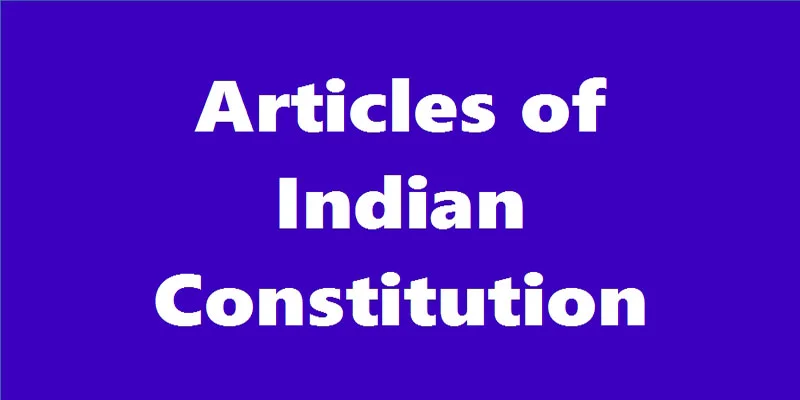The Constitution of India, adopted in 1950, is the country’s supreme law, consisting of 470 articles, 25 parts, and 12 schedules.
All 465 395 448 Articles of the Constitution of India
| Name | Articles of Indian Constitution |
| Format | |
| Size | 2.8 MB |
| Language | English |
| Download LInk | Full Version + Compact Version |
Info About Indian Constitution 2023
| Number of Articles | 448 |
| Number of Parts | 22 |
| Number of Schedules | 12 |
| Number of Amendments | 104 |
What is the Constitution of India?
In a nation, articles are the codified laws or fundamental principles that set up the Law/Bill of Rights. This constructs executive power as the supreme law of the land to control and protect the country. There exists a judicial branch to balance between government and the citizens of a country.
In India, the Constitution is the supreme law that effectively controls the whole country and maintains the balance between government and citizens.
What are the Salient Features of the Indian Constitution?
- The Indian Constitution is the bulkiest and longest written constitution in the world. It included 448 articles, 22 parts, 12 schedules, and 104 amendments at the present time (2021).
- There exists a Combination of Rigidity and flexibility – it is neither rigid nor flexible.
- Article 74 mentions the Parliamentary system of government – the Council of Ministers has real executive power.
- Article 1 mentions that It is a Federal system with a unitary bias – power is distributed to its states and union territories. Thus it is described as the Union of States
- The constitution of India provides Fundamental rights (Article 12 to 35) and fundamental duties (Article 51A) to the citizen. There are six fundamental rights and 11 fundamental duties.
- Article 36 to 51 mentions some Directive principles of state policy.
- Secularism All people have the right to follow their religious culture.
- Article 76 ensures that the Indian constitution is an Independent judiciary system. This means the judiciary system is not influenced by any person or authority. The Supreme Court is the highest court in India.
- Article 5 to 11 provides Single citizenship for every people in India.
- Article 79 mentions Bicameral legislatures i.e. there exists two houses Rajya Sabha and Lok Sabha.
- Article 352 to 360 mentions Emergency powers i.e. an extraordinary power is vested to the President of India.
- Indian constitution provides Special provisions for minorities i.e. SC, ST, OBC, etc.
Must Read: Revocation of the Article 370 35A
Read + Download: 22 Parts of the Indian Constitution
Why Indian constitution is important to you?
Are you an aspirant? Are you preparing for govt job examinations such as UPSC, IAS, Banking, Police, etc.? Hope the answer will be YES. Then you are at the right place. Indian constitution is very important for any kind of competitive examination. For every exam, 2 or 3 questions are mandatory. If one knows the articles, one could easily crack any competitive exam.
Read + Download: 12 Schedules of the Indian Constitution

I’m amazed, I have to admit. Rarely do I come across a blog that’s equally educative
and entertaining
Nice 😇
Mai upsc ki prepering karta huu
Best of Luck..
Thanks very interesting blog!